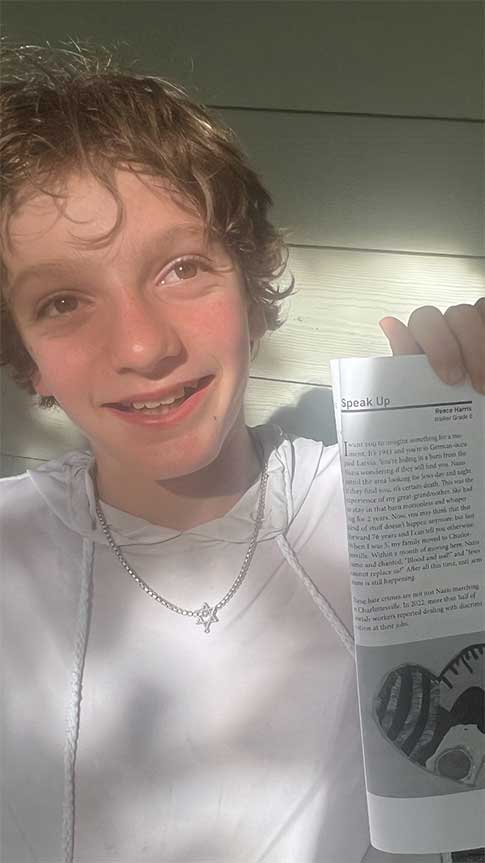
Reece HarrisLast month, my 12-year-old son, Reece, wrote and delivered a winning speech titled “Speak Up!” for an oratorical contest at his middle school in Charlottesville, Virginia. Reece shared some personal stories to advocate for his classmates to speak up if they see or hear anti-Semitism in our community.

Reece Harris
Speaking up isn’t always easy for a preteen. Or an adult. But speaking up is central to advocacy, and this issue of CHEST Advocates highlights some examples of how and why speaking up can make a difference.
This issue’s feature article tackles the topic of burnout among health care workers and explores the solutions, both on the personal and systemic levels, that are providing hope. Hear from former and practicing nurses and physicians about how they have prioritized their well-being—and how other clinicians can, too.
In another column, educator Abdullah Alismail, PhD, RRT-NPS, FCCP, focuses on helping his students practice speaking up in a clinical setting. He discusses how his students are “often, if not always, afraid to speak up.” Learn how Dr. Alismail strives to create a workplace with psychological safety by encouraging team members to communicate, ask questions, and share concerns. By promoting a professional culture where students feel they can speak up, Dr. Alismail has empowered his students to advocate for patients and each other.
Also in this issue, Carlos Alviar, MD; Diego J. Maselli, MD, FCCP; and Christopher Carroll, MD, FCCP, discuss how they, too, are helping their colleagues speak up for themselves in an intensive care setting. They share some practical tips for how to best identify stress or burnout in clinicians—without putting the burden of wellness back onto health care workers. Similarly, Ilana Krumm, MD, shares how her CHEST Research Grant in Medical Education has helped fund research into a program that gives trainees a protected space to share, reflect, and prioritize wellness.
Danielle McCamey, DNP, FCCP, is another advocate featured in this issue who has created a nurturing space in her nonprofit, DNPs of Color. This organization acts as a platform through which clinicians of color can share lived experiences, benefit from mentorship, and receive support from their peers.
In a special podcast, hear the story of Lilit Sargsyan, MD, FCCP, who shares her experience in the health care system as a patient with thyroid cancer. Through this journey, she had to quite literally relearn how to speak up for herself. Her story highlights how, as a physician, she was in a place of privilege to be able to advocate and fight for herself as strongly as she did.
Last but not least, read about CHEST’s efforts to recognize and destigmatize the emotional side of medicine through storytelling.
One of the experts we interviewed for this issue, psychiatrist and author Wendy Dean, MD, argues that clinicians should “speak out, but never alone.” She notes that a collective voice is more powerful than any one individual’s when advocating for change.
Our efforts may start small—like performing an essay in front of the entire middle school—but together, our voices will be heard.